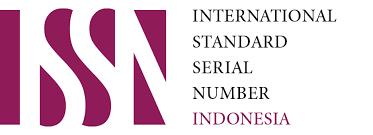Author Guidelines
General Instruction
Manuscript submitted to the JLC should be original work, has not been submitted for publication elsewhere, no conflict interest, and relevance to the focus and scope of the journal
1. Title, Authors
Full Title Not More Than 15 Words 13 Pts Cambria.
First Author (full first- and surname, no title)1, Second author (full first- and surname, no title)2
1Department of Community Education, Faculty of Teacher Training and Education, University of Jember Indonesia
Corresponding email: first author@..... 10 points Cambria.
2. Abstract
Abstract should less than 250 words for Regular Paper and up to 100 words for a Short Communication), and keywords. A perspective of topic areas is described. Some recommendations on writing for a worldwide readership are offered. The word “Abstract†must be Cambria, Bold, and 11 pt.
Keywords: not more than five keywords in alphabetical order separated by semi-colon must be provided to describe the content of the manuscript.
3. Language Accuracy
It is expected that authors will submit a carefully written and proofread material. Spelling and grammatical errors, as well as language usage problems, are not acceptable in the final submission.Papers should be written in English, clearly describe the background of the subject, the authors work, including the methods used, and concluding discussion on the importance of the work.
4. Pages and Words Number
The paper should range between 3.000 to 5.000 words or between 5 to maximum 9 pages. It is suggested that the paper is single-spaced in 11 pts with Cambria font.
5. Paper Format
The template is an A4 format with at least 3 cm margins left, right, top and bottom. Header and footer shall be positioned 16 mm (0.65 inch) from the edge.
All text paragraphs should be single spaced, with first line intended by 10 mm (0.4 inch). Double spacing should only be used before and after headings and subheadings. Position and style of headings and subheadings should follow this example. No spaces should be placed between paragraphs.
6. Fonts
The body of your paper should use 11-point Cambria font. The styles available are bold, italic and underlined. It is recommended that text in figures is not smaller than 9-point font size.
7. Tables and Figures
Figure captions and table headings should be sufficient to explain the figure or table without needing to refer to the text. Figures and tables not cited in the text should not be presented. All tables should be prepared in a form consistent and should be numbered consecutively with Roman numerals. Explanatory material should be given in the table legends and footnotes. Each table should be prepared on a new page, embedded in the manuscript.
When a manuscript is submitted for publication, tables must also be submitted separately as data - .doc, .rtf, Excel or PowerPoint files- because tables submitted as image data cannot be edited for publication and are usually in low-resolution.
Submit an original figure or photograph. Line drawings must be clear, with high black and white contrast. Each figure or photograph should be prepared on a new page, embedded in the manuscript for reviewing to keep the file of the manuscript under 5 MB. These should be numbered consecutively with Roman numerals. 8.
8. Manuscript Structure
Regular Papers should be prepared with the headings Introduction, Methods, Results and Discussion, Conclusions, References, and Supplementary data (if available)
9. Conclusion
Conclusions should be concise, state the most important propositions of the paper as well as the author’s views of the practical implications of the results.
10. References
References begin on their own page and are listed in alphabetical order by the first author's last name. Only references cited within the text should be included. Ensure that in-text (Citation) references are quoted as per the APA in-text citation style. All references should be in 12-point font and single-spaced.
NOTE: When formatting your references, please follow the APA reference style (6th Edition). Ensure that the references are strictly in the journal’s prescribed style, failing which your article will not be accepted for peer-review. You may refer to the Publication Manual of the American Psychological Association for further details (http://www.apastyle.org/). Include the following information (as applicable).
- For a book: author(s), (year), book title, page or chapter numbers, publisher, city.
- For a journal paper: author(s), (year), paper title (in quotes), journal name, volume and issue numbers, page numbers (inclusive).
- For a proceedings paper or chapter in an edited book: author(s), (year), paper or chapter title (in quotes), volume title, editor(s), volume number (if applicable), publisher, city, page numbers (inclusive).
Template can be downloaded from TEMPLATE OF FULL PAPER (DOCX)





.png)









